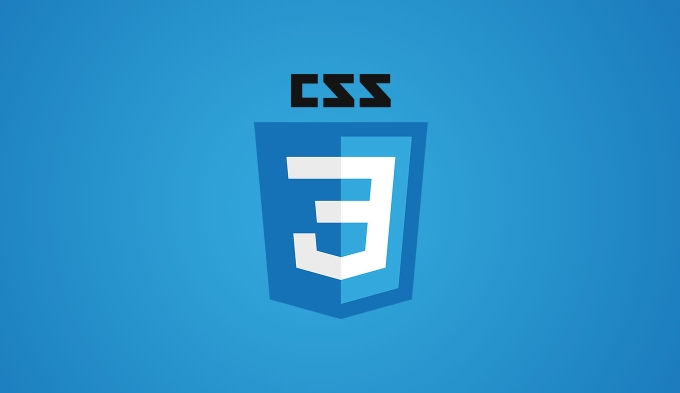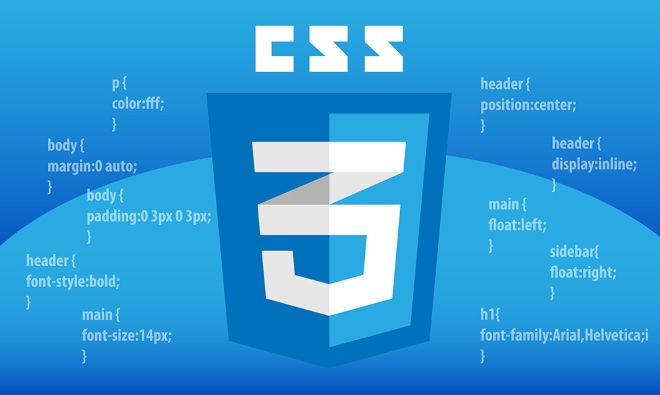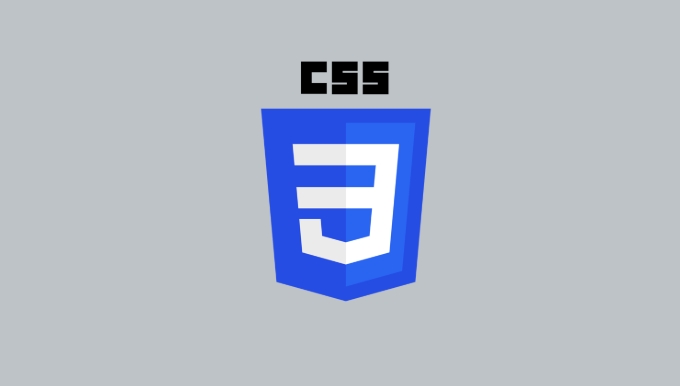CSS specificity is the core mechanism that determines the priority of styles, and determines which rule takes effect through the weight calculation of the selector. Inline styles score 1000 points, ID selectors score 100 points each, classes, attributes, and pseudo-classes score 10 points each, elements and pseudo-elements score 1 point each; different categories scores cannot be carried; for example, ten class selectors (100 points) are still lower than one ID (100 points). Abuse of !important should be avoided, understanding the order of inheritance and cascade, and analyzing style conflicts with browser tools.

CSS specificity is one of the core mechanisms that control style priorities. Simply put, when multiple CSS rules are applied to the same element, the browser will determine which rule actually takes effect by calculating the "specificity" of each rule.

What is CSS specificity?
Specificity can be understood as a "weight" system. Each selector has a specific score, which sums up determines which style rule will be applied eventually.

For example: If you write two rules that work on the <p></p> tag, one of which is p { color: red; } and the other is .highlight { color: blue; } , then the .highlight class with higher specificity will choose to win, and the text color will be blue.
How to calculate specificity?
Specificity consists of four types of "barrels", from high to low:

- Inline styles (such as
style="color:red") → Each inline style scores 1000 points - ID selector (such as
#main) → Each ID scores 100 points - Class, attribute and pseudo-class selectors (such as
.class,[type="text"],:hover) → each scores 10 points - Element selector and pseudo-element (such as
div,::before) → each scores 1 point
for example:
/* .nav #menu → 10 100 = 110 */
#menu .nav {
color: green;
}and:
/* div .header :hover → 1 10 10 = 21 */
div.header:hover {
background: yellow;
}Note: Scores in different categories cannot be carried. For example, the total score (100) of ten class selectors is not as good as an ID (100) because they belong to different "digits".
FAQs and Suggestions
Avoid abuse !important
Although !important can force overwrite other styles, it is a "brutal means" to destroy cascade logic and will complicate debugging. Unless otherwise specified, try not to use it or use it less.
Understand inheritance and cascade order
Not all styles will be inherited, nor will the styles written in the following will take effect. Understanding the order of stacking of CSS (source, importance, specificity, order) can help you better control style behavior.
Use tools to assist with analysis
Modern browser developers can see what rules each element matches and their specificity. This is very helpful in troubleshooting style conflicts.
Let's summarize
Understanding CSS specificity is not difficult, the key is to remember that it is calculated based on selector type, not code order or stylesheet position. As long as you understand the weights of various selectors, you can write clearer and more controllable style rules.
Basically that's it.
The above is the detailed content of Understanding css specificity and how it is calculated. For more information, please follow other related articles on the PHP Chinese website!

Hot AI Tools

Undress AI Tool
Undress images for free

Undresser.AI Undress
AI-powered app for creating realistic nude photos

AI Clothes Remover
Online AI tool for removing clothes from photos.

Clothoff.io
AI clothes remover

Video Face Swap
Swap faces in any video effortlessly with our completely free AI face swap tool!

Hot Article

Hot Tools

Notepad++7.3.1
Easy-to-use and free code editor

SublimeText3 Chinese version
Chinese version, very easy to use

Zend Studio 13.0.1
Powerful PHP integrated development environment

Dreamweaver CS6
Visual web development tools

SublimeText3 Mac version
God-level code editing software (SublimeText3)

Hot Topics
 What is 'render-blocking CSS'?
Jun 24, 2025 am 12:42 AM
What is 'render-blocking CSS'?
Jun 24, 2025 am 12:42 AM
CSS blocks page rendering because browsers view inline and external CSS as key resources by default, especially with imported stylesheets, header large amounts of inline CSS, and unoptimized media query styles. 1. Extract critical CSS and embed it into HTML; 2. Delay loading non-critical CSS through JavaScript; 3. Use media attributes to optimize loading such as print styles; 4. Compress and merge CSS to reduce requests. It is recommended to use tools to extract key CSS, combine rel="preload" asynchronous loading, and use media delayed loading reasonably to avoid excessive splitting and complex script control.
 How to use Lotties in Figma
Jun 14, 2025 am 10:17 AM
How to use Lotties in Figma
Jun 14, 2025 am 10:17 AM
In the following tutorial, I will show you how to create Lottie animations in Figma. We'll use two colorful designs to exmplify how you can animate in Figma, and then I'll show you how to go from Figma to Lottie animations. All you need is a free Fig
 Breaking Boundaries: Building a Tangram Puzzle With (S)CSS
Jun 13, 2025 am 11:33 AM
Breaking Boundaries: Building a Tangram Puzzle With (S)CSS
Jun 13, 2025 am 11:33 AM
We put it to the test and it turns out Sass can replace JavaScript, at least when it comes to low-level logic and puzzle behavior. With nothing but maps, mixins, functions, and a whole lot of math, we managed to bring our Tangram puzzle to life, no J
 External vs. Internal CSS: What's the Best Approach?
Jun 20, 2025 am 12:45 AM
External vs. Internal CSS: What's the Best Approach?
Jun 20, 2025 am 12:45 AM
ThebestapproachforCSSdependsontheproject'sspecificneeds.Forlargerprojects,externalCSSisbetterduetomaintainabilityandreusability;forsmallerprojectsorsingle-pageapplications,internalCSSmightbemoresuitable.It'scrucialtobalanceprojectsize,performanceneed
 Does my CSS must be on lower case?
Jun 19, 2025 am 12:29 AM
Does my CSS must be on lower case?
Jun 19, 2025 am 12:29 AM
No,CSSdoesnothavetobeinlowercase.However,usinglowercaseisrecommendedfor:1)Consistencyandreadability,2)Avoidingerrorsinrelatedtechnologies,3)Potentialperformancebenefits,and4)Improvedcollaborationwithinteams.
 CSS Case Sensitivity: Understanding What Matters
Jun 20, 2025 am 12:09 AM
CSS Case Sensitivity: Understanding What Matters
Jun 20, 2025 am 12:09 AM
CSSismostlycase-insensitive,butURLsandfontfamilynamesarecase-sensitive.1)Propertiesandvalueslikecolor:red;arenotcase-sensitive.2)URLsmustmatchtheserver'scase,e.g.,/images/Logo.png.3)Fontfamilynameslike'OpenSans'mustbeexact.
 What is Autoprefixer and how does it work?
Jul 02, 2025 am 01:15 AM
What is Autoprefixer and how does it work?
Jul 02, 2025 am 01:15 AM
Autoprefixer is a tool that automatically adds vendor prefixes to CSS attributes based on the target browser scope. 1. It solves the problem of manually maintaining prefixes with errors; 2. Work through the PostCSS plug-in form, parse CSS, analyze attributes that need to be prefixed, and generate code according to configuration; 3. The usage steps include installing plug-ins, setting browserslist, and enabling them in the build process; 4. Notes include not manually adding prefixes, keeping configuration updates, prefixes not all attributes, and it is recommended to use them with the preprocessor.
 What are CSS counters?
Jun 19, 2025 am 12:34 AM
What are CSS counters?
Jun 19, 2025 am 12:34 AM
CSScounterscanautomaticallynumbersectionsandlists.1)Usecounter-resettoinitialize,counter-incrementtoincrease,andcounter()orcounters()todisplayvalues.2)CombinewithJavaScriptfordynamiccontenttoensureaccurateupdates.






